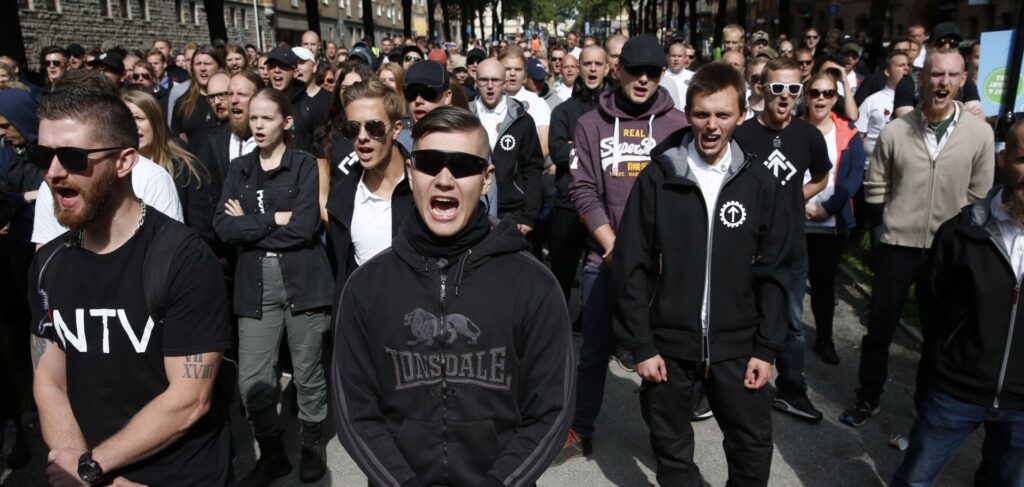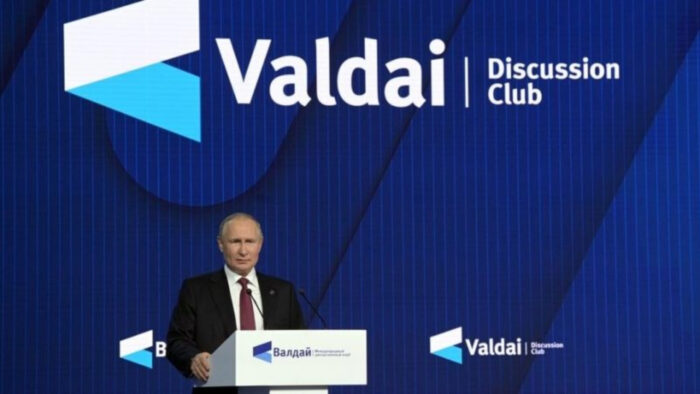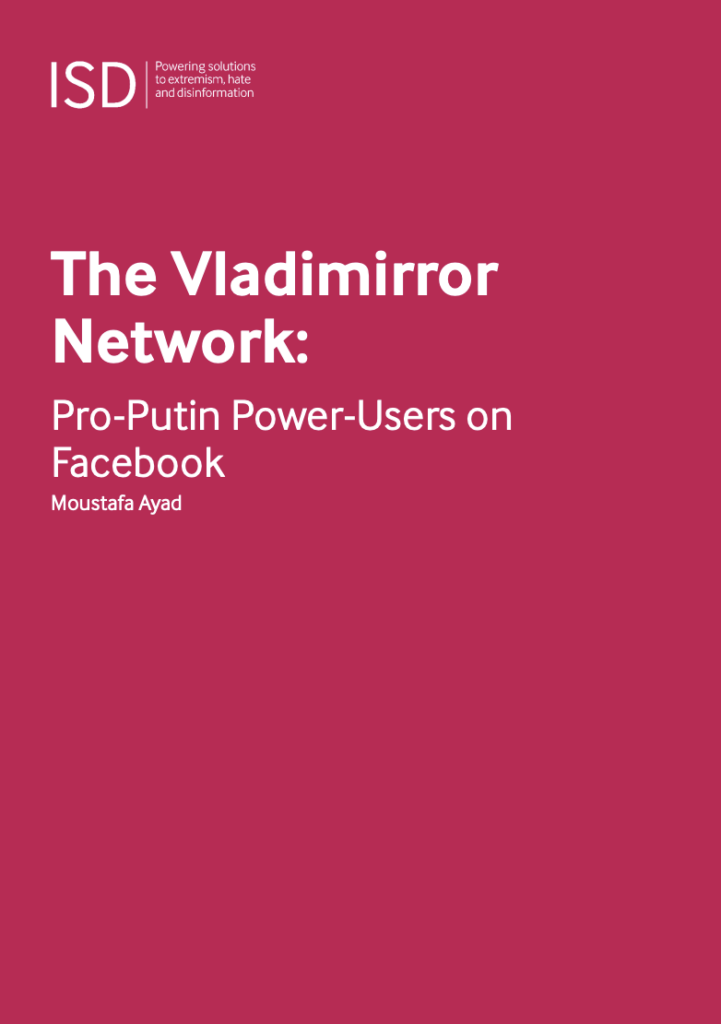The New York Times is reporting how pro-Russian sentiment is spreading online as an extension of US “culture war” politics. According to the New York Times report, influential US conservative voices are playing an increasing role in amplifying pro-Russian messaging:
February 25, 2022 The day before Russia invaded Ukraine, former President Donald J. Trump called the wartime strategy of President Vladimir V. Putin of Russia “pretty smart.” His remarks were posted on YouTube, Twitter and the messaging app Telegram, where they were viewed more than 1. 3 million times. Right-wing commentators including Candace Owens, Stew Peters and Joe Oltmann also jumped into the fray online with posts that were favorable to Mr. Putin and that rationalized his actions against Ukraine. “I’ll stand on the side of Russia right now,” Mr. Oltmann, a conservative podcaster, said on his show this week. And in Telegram groups like The Patriot Voice and Facebook groups including Texas for Donald Trump 2020, members criticized President Biden’s handling of the conflict and expressed support for Russia, with some saying they trusted Mr. Putin more than Mr. Biden. The online conversations reflect how pro-Russia sentiment has increasingly penetrated Twitter, Facebook, YouTube, right-wing podcasts, messaging apps like Telegram and some conservative media. As Russia attacked Ukraine this week, those views spread, infusing the online discourse over the war with sympathy — and even approval — for the aggressor. The positive Russia comments are an extension of the culture wars and grievance politics that have animated the right in the United States in the past few years. In some of these circles, Mr. Putin carries a strongman appeal, viewed as someone who gets his way and does not let political correctness stop him. “Putin embodies the strength that Trump pretended to have,” said Emerson T. Brooking, a resident senior fellow for the Atlantic Council who studies digital platforms. “For these individuals, Putin’s actions aren’t a tragedy — they’re a fantasy fulfilled.” Support for Mr. Putin and Russia is now being expressed online in a jumble of facts, observations and opinions, sometimes entwined with lies. In recent days, commenters have complimented Mr. Putin and falsely accused NATO of violating nonexistent territorial agreements with Russia, which they said justified the Russian president’s declaration of war on Ukraine, according to a review of posts by The New York Times.
Read the rest here.
As the NYT points out, such pro-Russian sentiment is a striking new development in US politics::
The pro-Russia sentiment is a stark departure from during the Cold War, when the Soviet Union was viewed by many Americans as a foe. In recent years, that attitude shifted, partly helped along by interference from Russia. Before the 2016 U.S. presidential election, Kremlin-backed groups used social networks like Facebook to inflame American voters, creating more divisions and resistance to political correctness.After Mr. Trump was elected, he often appeared favorable to — and even admiring of — Mr. Putin. That seeded a more positive view of Mr. Putin among Mr. Trump’s supporters, misinformation researchers said.
The Global Influence Operations Report (GIOR) published a report earlier on how Fox News Star Tucker Carlson has featured prominently in Russian propaganda efforts.
GIOR has also recently published a report on a new and developing alliance between US conservatives and European nationalists, seen as a means for Russia to exert covert influence in Europe and the US. According to that report, culture war issues play a prominent role in that alliance:
Russia is a prolific actor in the influence operations arena, both in the US and Europe. Russian President PUTIN has expressed an interest in Russia becoming the ideological center of a new global conservative alliance, and European far-right leaders have taken pro-Russian positions based on a similar ideology. Hungary is at the center of a developing alliance between European far-right nationalists and American conservatives that Russia could potentially exploit for use in information warfare. This alliance operates under the rubric of “National Conservatism,” centered on national sovereignty, cultural identity, and opposition to global institutions and representing a potentially radical change for the US conservative movement away from long-held Reagan-era philosophies.
Dowload the full report here.









COMMENTS
Comments are closed here.